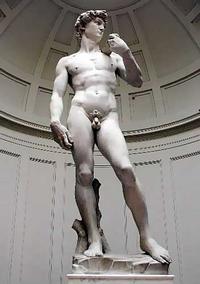 Apple is on a roll. And so is its co-founder Steve Jobs. Why?
Apple is on a roll. And so is its co-founder Steve Jobs. Why?
In a world of muted, bland corporate identities and product designs, Apple dares to take a stand. Its corporate visual identity, store design and product designs are inspiring. They move people on an emotional level when most products utterly fail to inspire. Who can forget the Think Different ads featuring iconic individuals such as Gandhi, Einstein and Picasso, the animated ads featuring U2 performing their hit song “Vertigo,” or the stunning design of the iPhone? When critics of the iPhone complained that Apple sacrificed battery functionality for design, I thought to myself, “what did they expect?” Steve Jobs has an off the charts passion for aesthetic beauty and excellence. Understanding this is key to decoding what Jobs and Apple are all about. It also helps explain why they’ve been extraordinarily successful.
Let’s begin by making it clear what Steve Jobs is not. Frequently, Jobs has been portrayed as a bully. He isn’t. A bully abuses power because he enjoys dominating others. Jobs may throw his power around at times in ways that are unseemly but he does so because he feels it is necessary to meet an end that he deems as worthy, i.e. creating a product that is visually and functionally inspiring. If he has to throw a tantrum and yell and scream to get employees at Apple to meet this objective, he will. And he will stretch the truth a bit from time to time for the sake of a good story that inspires too. (I’ll write about the dangers of these actions in a future post.)
The introductory ad in the “Think Different” campaign provides an insight into Jobs’ psyche. The ad copy states:
Here’s to the crazy ones.
The misfits.
The rebels.
The troublemakers.
The round pegs in the square holes.
The ones who see things differently.
They’re not fond of rules.
And they have no respect for the status quo.
You can quote them, disagree with them, glorify or vilify them.
About the only thing you can’t do is ignore them.
Because they change things.
They invent. They imagine. They heal.
They explore. They create. They inspire.
They push the human race forward.
And while some may see them as the crazy ones,
We see genius.
Because the people who are crazy enough to think they can change the world,
Are the ones who do.
That’s Steve Jobs being described in that copy. A reporter in attendance when the Think Different television ad was debuted to Apple employees described Steve Jobs’ reaction. As Jobs watched the ad, tears streamed down his face.
Is he crazy? Perhaps.
Is he an obsessive visionary? Absolutely.
Will he change the world? Count on it. He’s doing it already.
All of this begs the question, “Why is Jobs this way?” A psychoanalyst might see it as a case of transference. During some season in Jobs’ life someone probably made him feel inferior. Perhaps he had little or no power at that time to rise up against his oppressor so the anger boiled inside him. Today, he is determined to never, under any circumstance be treated that way again. And yet he is aware of a menacing presence out there that’s scheming to subdue him. Its name is Microsoft.
Jobs sees Apple as David to Microsoft’s Goliath. Microsoft represents the oppressor. Apple is the oppressor’s intended victim. To Jobs, Microsoft’s products are for conformists who blend in and lack the courage to adopt more innovative products. Apple is for creatives who challenge the status quo and the oppressor’s dominance by embracing innovation.
Apple is winning the war with Microsoft because America is the land of individualism where few want to be thought of as your average conformist. Apple’s identity is America’s identity. Americans love the David and Goliath narrative in whatever its form. When you purchase an Apple, you vote for David and you become more David-like when you tote around a laptop with an Apple on it.
When you look at the actions of Steve Jobs, Apple and the American computer-buying public through the lens of identity, it makes sense doesn’t it?
What do you think?
Note: In an upcoming post, I’ll tackle the traps awaiting Microsoft in realizing Yahoo’s value.




